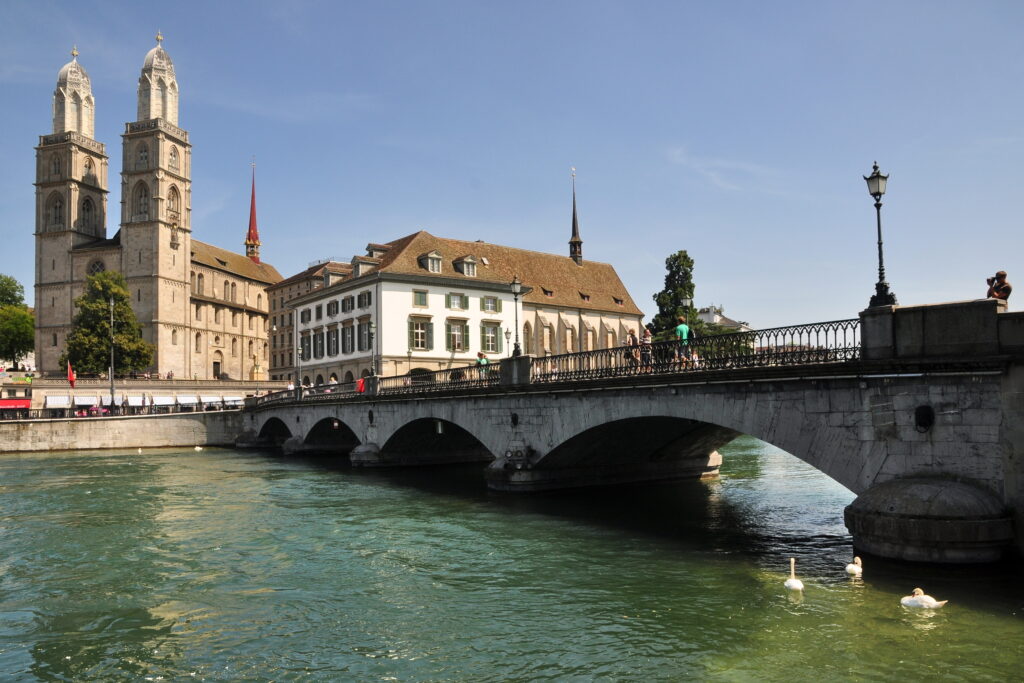Jürgen Kaljuvee writes that as you graduate to the later part of your youth in your forties, you want to live in a place where you can also raise a family, have a lake view, be close to nature and have a bit of breathing space.
From time to time a magazine or a think tank publishes a study or survey, comparing the cost of living for different cities. In recent years, Zurich has come up on the number one spot invariably, and as more expensive than, for example, London or New York.
Consequently, I have been getting questions from various parts of the world in a line of “can you afford to take public transport anymore or do you have to walk to work?” and “would I need a second mortgage to be able to eat at restaurants there?” I would like to address these concerns and explain why Zurich is expensive and why it is a good thing – and finally also put the discussion of New York vs London vs Zurich in bed once and for all.
Why is Zurich so expensive?
Zurich is expensive for one simple reason – labour and service here is expensive, because people get paid a lot. In fact, another survey shows that the highest salaries in the world also happen to be in Zurich.
Now, because almost every product or service we see around us is touched by human labour at one point or another – whether explicitly as in taxis in the form of cab driver pay, or implicitly in groceries in the form of transportation costs and check-out girl salaries – everything you can buy, costs more money here. The good news is that the extras seem to be going to service staff, and everyone seems to be happy.
To illustrate this story, I recall one of the first occasions when my wife and I visited Zurich and ate at a small restaurant in downtown near Münsterbrücke. We could not help but to notice that the entire floor of about 10 tables was serviced by only one guy, who was not only taking orders and cleaning the tables, but also processing the payments.
I finally pointed out to him that in New York or London there would be probably five people doing his job. He replied that it is only him here, but luckily he also gets paid five times as much. That is probably true, as people immigrating to mega-cities are willing to work for almost nothing and sometimes tend to feed themselves only by looking at the incredible skylines those cities have to offer.

Expensive is good – optimising on constraints and valuing time
One of the least recognised benefits of expensive cities is that they teach you how to optimise both time and money (which often amount to the same thing). When things are expensive, you begin questioning if you really need them, and as a result you notice collecting and consuming less “rubbish”, which in itself is a good thing, one could argue.
Because time is expensive in expensive cities, people do not hang around or loiter there aimlessly and idly on the streets.
They are also more punctual, as they begin valuing not only their own time, but also that of the others. Then it should come as no surprise that when they measured the speed of postal clerks or the punctuality of trains in a study quoted by the book “A Geography Of Time: On Tempo, Culture, And The Pace Of Life“, Zurich postal clerks and trains easily came up on top.

Consequences of expensive cities – skinny people in large spaces
One of the consequences of living in expensive cities is that people find it too expensive and tend to stay away from them. As a result, there seems to be a lot of space – for instance, real estate here is less expensive than in many densely over populated mega-cities like New York, London or Hong Kong – but on the other hand, food is expensive.
One of the clear consequences of this for example is that people in Zurich tend to eat less and are skinnier but live in bigger spaces, whereas people in hyper-cities like London tend to be fatter and live in smaller spaces. A casual visit and a glance at the street picture of these two cities will certainly confirm this observation.

Where should I live then? 25 – New York, 35 – London, 45 – Zurich
A natural question arises that if some cities are more expensive than others, where should one live if you are an expat and if you can choose where in the world to live? The answer is that it depends on your values, which in turn depend mostly on you age.
To add a bit of colour to this argument, an older British gentleman living in Zurich once made an observation that your value system and your preferences for certain cities will change over time. He summarised it with a simple expression: 25 – New York, 35 – London and 45 – Zürich, which I thought is quite catchy and quotable.
The reasoning is that in your twenties you want to be in a place like New York, which resembles a giant night club, thronging young people who live and party as though Friday is the last day of their life, and on Mondays begin working like it is the first day of their life.

As you grow a bit older, you realise that there are other things besides living in a compact grid and being able to attend multiple gallery openings in a single night and so you move to London which is a bit more serious place.
Finally, as you graduate to the later part of your youth in your forties, you want to live in a place where you can also raise a family, have a lake view, be close to nature and have a bit of breathing space.
There are many expats that have certainly followed this path.


I agree with all the above, convenience for travel and shopping is a factor, and not feeling isolated in the ‘open space’ life styles.
Zurich is preferable for the high quality of life and especially for people over 45 years old.